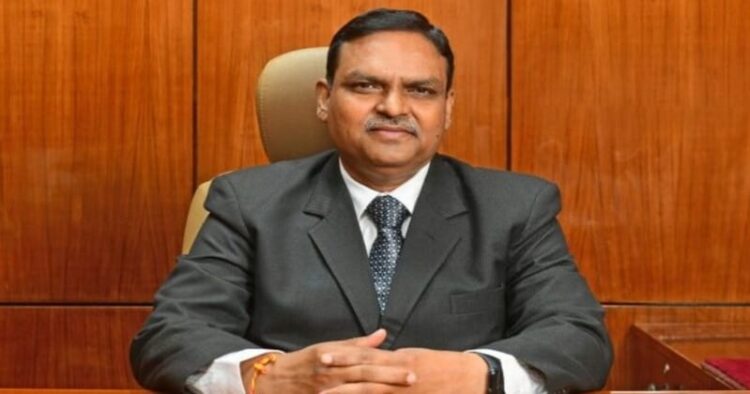The Chairman and Managing Director of the National Dairy Development Board (NDDB), Meenesh Shah, said that India’s milk production will increase to 30 per cent of the total production in the world by 2030 and that the country will be producing one-third of the milk in the world.
While speaking to the media on Friday, Meenesh Shah said, “We are the largest milk producer in the world. Our production is 235 million metric tons per day. We are actually producing 24 per cent of the world’s milk production–one-fourth. It is providing actually four to 5 per cent to our nation’s GDP. Now, our plan is to increase this 24 per cent share in the world to 30 per cent by 2030. So from one-fourth, we will be producing one-third of the milk produced in the world in our country.”
“For that to happen, we are working on increasing the productivity of our animals. So although we are the largest milk producer in the world, our animal productivity is not up to par as compared to developed countries. So we are working with the Government of India’s Rashtriya Gokul Mission programme to improve the breeding of animals,” added the NDDB chairman.
The NDDB head further said, “We are increasing the genetics of the animal, the genomic chip of the animal, and with our indigenous technology, the health of the animals. The Government of India has come out with a free vaccination programme for FMD and Brucellosis, which are the two most critical diseases for farmers. So breeding, nutrition and health–these are the three areas where we are working together.”
Talking about the uses of renewable energy in the dairy sector, the Chairman and Managing Director of NDDB said that the NDDB is trying to become a net-zero dairy by 2050 or 2070.
“Our Prime Minister has already given a vision that we will become a net-zero country by 2070. If that has to happen, dairy also has to contribute because the largest number of animals are emitting methane, which is polluting the environment. So we are trying to reduce the methane emissions through a ration balancing programme. The dung, which has methane, and we are trying to use it productively, as biogas, is provided to the farmers. We are working on solar rooftops in dairy cooperative societies in all the villages,” he added.
“We are also working on bulk milk coolers and the automatic milk collection system, which is fully powered by solar energy. These are various initiatives that we are taking forward,” Dr Meenesh Shah said.
Dr Meenesh Shah also stated that the Government of India, NDDB, is actively involved in working with KfWor Kreditanstalt fur Wiederaufbau, which is a German state-owned investment and development bank, which will provide grants and subsidised loans for promoting solar energy use in dairy plants.
“We hope that that scheme will be approved shortly and we will be able to cover more and more dairy plants using renewable energy,” Meenesh Shah said.
Talking about the joint venture company between the Assam Government and NDDB, Meenesh Shah said, “We have formed a joint venture company with the Assam Government and it is a 50-50 joint venture company between the Assam Government and NDDB. This joint venture will work for the holistic development of the dairy sector in the State.”
“We have prepared an Assam dairy development plan for the next seven years, and the plan is now approved by the cabinet of Assam. Under that plan, over the next seven years, our target is to procure 10 lakh litres of milk in Assam and also process it. We are going to set up the infrastructure required to process 10 lakh litres of milk and we will increase the coverage so that we can add more farmers. We will cover the entire Assam,” said Meenesh Shah.
The NDDB head further said that the NDDB has been working with the West Assam Cooperative Milk Union (WAMUL) for the development of the dairy sector in the State since 2008.
Meenesh Shah further mentioned that Assam Chief Minister Himanta Biswa Sarma is scheduled to launch a new dairy plant and said, “The Assam Chief Minister will inaugurate a new plant existing in Purabi Dairy on Saturday.”
“Our processing plan was 60,000 litres of milk per day, and we are increasing it to 1. 5 lakh litres per day. The new plant will have the capacity to produce 10 MT of curd per day, 10,000 litres of lassi per day, and 2 tonnes of paneer per day. We will be able to meet the additional demand. We have also set up an ice cream plant in this new processing plant and 2000 litres of ice-cream will also be produced,” Meenesh Shah said.
(with inputs from ANI)



















Comments